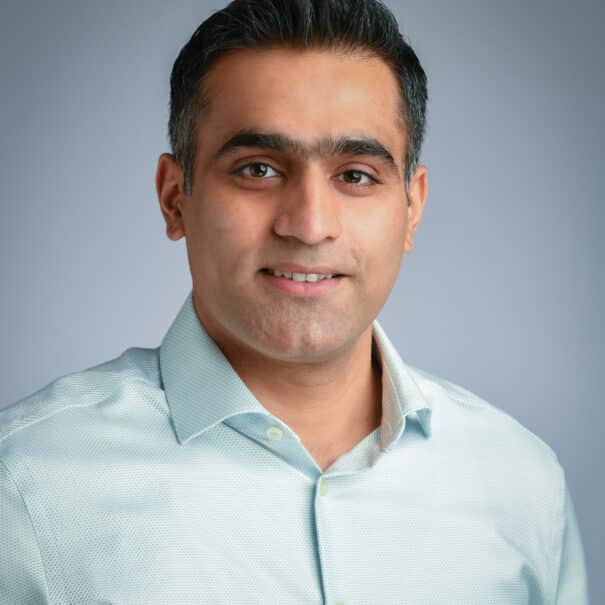
Day in the Life of Rishi Joshi, VP Marketing & Business Development, DNAe
Imperial College London spin-out DNAe is at the forefront of a new wave of Next Generation Sequencing (NGS) diagnostics that are set to revolutionise our ability to diagnose, treat and prevent disease – rapidly and at the point of need.
Co-founded by Imperial’s Regius Professor Chris Toumazou FRS and based at Scale Space White City, DNAe is harnessing its breakthrough semiconductor sequencing technology to develop a new sample-to-result, fully automated, NGS-based diagnostic platform, LiDia-SEQ™. Currently in planning phase for commercial launch, this new platform is poised to deliver clinically relevant genomic sequencing results within a few hours. For clinicians, this promises to bring transformative capabilities for informing clinical decision-making, and the ability to boost treatment efficacy and improve patient outcomes in key areas including bloodstream infections, antimicrobial resistance and oncology.
For our Day in the Life feature, Rishi Joshi, DNAe’s VP of Marketing and Business Development, takes us through his working day and explains why Next Generation Sequencing technology is set to play a defining role in delivering faster, more effective healthcare.
Q: What is a typical day like for you?
A: In my role as VP of Marketing and Business Development, I head up the commercial function at DNAe. The current focus for me and my commercial team is working closely with our world-class development team to make sure that our new sample-to-result diagnostic platform, LiDia-SEQ™, meets the needs of our target market and clinical applications as we move towards full commercial availability. Day to day, my role largely involves meeting and working with our potential partners to develop the collaborative foundation for a successful launch of our product.
Q: What do you love about working in WCID – in three words?
A: Collaborative, energetic, diverse.
Q: Why did you choose to be located here?
A: DNAe is a proud spin-out of Imperial College London, so it was a natural progression for us to base our operations in White City and retain close links with Imperial’s entrepreneurial and scientific community. White City Innovation District offers access to a unique innovation ecosystem that is creating a global reputation in life sciences and medtech, so being at the centre of that was important to us.
Q: What does ‘innovation’ mean to you and how does your company contribute to it?
A: At DNAe, we are working on something that is truly groundbreaking and first-of-its-kind. Few people can say that about their work!
The platform we are developing offers very exciting potential for transforming care pathways as we know them. Today, the current standard of care for sepsis means that it can take days to get a definitive diagnosis, which can have a significant and negative impact on patient outcomes (morbidity and mortality). We are working to deliver accurate, NGS-based results in a matter of hours, so that patients can get on the appropriate therapy and treatment plan as soon as possible and certainly much, much earlier than they can currently. In clinical terms, this is a genuinely disruptive innovation and has the potential to have a profound and positive impact on patient outcomes.
Q: What are you most proud of in your current role?
A: A particularly proud moment for me was the publication last year of the first data on our LiDia SEQ™ platform at the AMP (Association for Molecular Pathology) conference in Vancouver. The interest we had from clinicians and academics in our datasets and what we are trying to achieve was very inspiring. We’ll be continuing to build out our datasets and releasing further study results ahead of our commercial launch, so watch this space.
Q: What is the hot topic in your business?
A: In the field of Next Generation Sequencing, getting results nearer to the patient – reducing sequencing time and complexity and increasing accessibility – is a clear trend, and will continue to be a key driver of adoption in clinical settings. The other key topic is the potential for NGS to play a pivotal role in oncology. We’re now applying our platform to applications in oncology diagnostics, both for cancer monitoring and treatment, so this is very much a live area of development for us.
Q: What’s the best business advice you have for people looking to break into your specialism?
A: To learn to and push yourself to make decisions – even when you may not have all the information you ideally want. Procrastination over making decisions is never productive.
Q: What would Plan B have been on the career front?
A: I love riding motorbikes and being a professional motorbike racer would be a dream Plan B!
